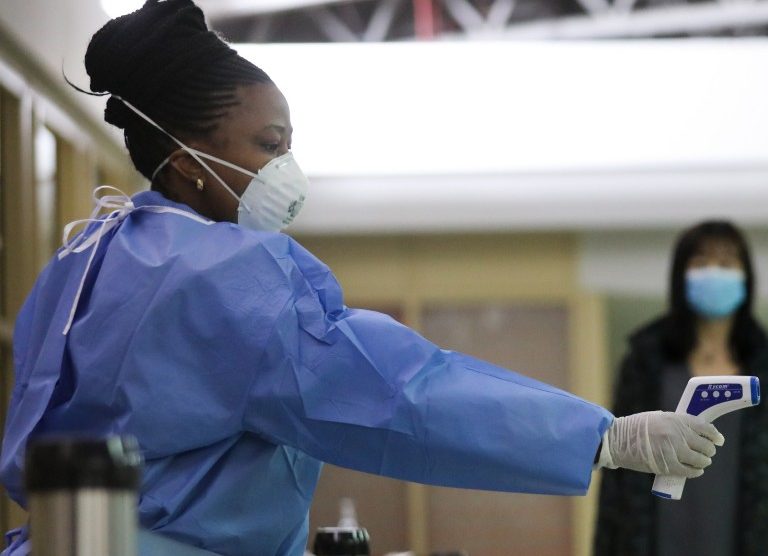It is no longer news that there is an outbreak of coronavirus in China which is fast spreading to other parts of the world. The first case was reported in the Wuhan region of China on December 31, 2019, and there are currently over 28,000 confirmed cases in 24 countries; a figure which is still on the rise 37 days after the first case.
As of today, there are also a number of suspected cases in seven African countries, none of which have been confirmed, but the people have been quarantined.
Recall that in past years, African countries have also had breakouts of infections like bird flu, Lassa fever, swine flu, and Ebola which, as a matter of fact, was the first infection to reach epidemic proportions globally. Each of these infections actually dominated their timelines until they were either eradicated or contained.
If a case of coronavirus is confirmed in Africa, it would be the first time a pandemic (caused by a virus) crossed many seas to enter the continent.
But that’s not the news. There’s a need to evaluate how an important part of our daily interaction — the Internet — comes to play at a time like this.
It is a no brainer that when there’s a fear of infection, people’s apprehension is heightened. It is therefore understandable that social media has been abuzz with news since the first case of coronavirus was reported. This is not strange, because everyone wants to know what happens next.
While it is true that social media can be a reliable source for current trends, you may have to be careful about what you choose to believe. Although no case of the virus has been recorded in some countries like Nigeria, we cannot be too prepared for an eventuality.
What is there to gain or lose?
It goes without saying that social media plays an important role during an outbreak, especially for information dissemination. Ironically, Nigeria’s high Internet penetration level hasn’t translated to a well-informed populace.
Dr Afolabi, an experienced medical doctor at a hospital in Lekki, explains that this may have resulted from Africans’ disposition towards health.
“We need to consider the socio-cultural aspect of this. In Africa, the level of literacy is low, ignorance level is high, and health-seeking behaviour is very poor,” he says.
He mentions how, despite available information, people sometimes stay away from knowing because of fear.
Dr Folasade Oluwagbenga, a medical doctor at the Federal Medical Center, Abeokuta, is of a similar opinion.
“The Internet or social media, if not well managed will result in hysteria or cause panic. If well utilised, it will be a media to get a larger audience informed the right way,” he explains.
Regardless, we cannot rule out the possibility of misinformation to be peddled at such times.
Misleading information is the strong bane of the Internet. While recalling a familiar case, Dr Afolabi says, “during the Ebola virus epidemic, misinformation about soaking in salt solution caused a lot of kidney failures.”
Dr Oluwagbenga also recalls such cases when patients arrived at the hospital panicking because they noticed some symptoms social media suggested were signs of the deadly infection.
“This condition is called hypochondriasis. When a person is unnecessarily panicking because they think they have a sickness. What we do is to run some tests, allay their fears, and counsel them.”
In his opinion, social media has a huge role to play in helping people protect themselves in case of an epidemic only when they are connected to the right channels.
Now, a good place to begin is to ask if you know the steps to take in order to protect yourself. How conscious are you of your health?
Be informed, don’t panic!
These precautions will protect you not only from an impending infection but also from other risk factors.
According to the World Health Organization, there are some necessary precautions to reduce the risk of contraction.
- Avoid close contact with people suffering from acute respiratory infections
- Frequent hand washing, especially after direct contact with ill people or their environment
- Avoid unprotected contact with farm or wild animals
- People with symptoms of acute respiratory infection should practise cough etiquette (maintain distance, cover coughs and sneezes with disposable tissue or clothing, and wash hands)
- Within healthcare facilities, enhance standard infection prevention and control practices in hospitals, especially in emergency departments
If in doubt, don’t raise an alarm, visit a hospital.






